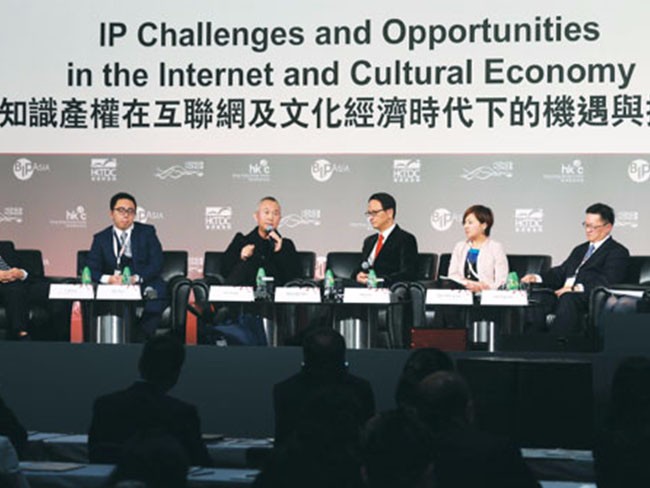2014-12-10
Emma Dai

With the protection and development of intellectual property (IP) gaining importance in China, various businesses find it’s a challenge to manage growing IP risks amid fierce competition, and creating value from intangible assets is also an ambitious task, industry professionals told a China Daily roundtable summit in Hong Kong on Thursday. “As the prime gateway to the mainland market, Hong Kong’s indispensable economic role has been enhanced in the intellectual property sector in the past decade,” Zhou Li, publisher and editor-in-chief of China Daily Asia Pacific, said at the Business of IP Asia Forum. “Hong Kong helps to achieve a win-win situation for both Chinese IP players seeking worldwide market for their products and services, and their international peers using the SAR as a platform to make inroads into the Chinese mainland,” Zhou said. “At the end of November, Premier Li Keqiang vowed to boost all-round protection for IP and encourage creation as well as application of IP in the country from 2014 to 2020,”said Li Zhong, deputy director-general of the Beijing Intellectual Property Office. Li said the State Council has increased its fiscal support for IP protection, and Beijing has set up a court specializing in IP cases, while another two similar courts will be established in Shanghai and Guangdong province before year-end. “As an IP creator as well as end-user, IP is the core-competitiveness of our company. It adds value to our products,” said Yao Yingjia, vice-president and chief designer of Lenovo Group. “IP represents wisdom as well as asset. It creates more value than one can imagine,” Yao told the forum. “However, in an information era, it’s getting harder to protect a single IP. In real competition, the party which owns a basket of related patents enjoys much more strength.” Shen Nan, chief licensing officer of ZTE Corporation — the world’s fifth-largest telecom equipment maker — said that for business involving a wider range of products in an increasing number of markets around the globe, the challenge to manage IP risks has become multi-level. “Now, as our product line expands to the smartphone, we start getting involved in disputes relating to commercial essential patents, such as search engine and voice control technologies,” Shen said. But at the same time, one should always focus on creating more value from the intangible assets, pointed out Amy Liu, senior vice-president of EntGroup, a consultancy specializing in the cultural industry. Different from the high-tech sector, the cultural industry in China only began to take IP seriously in recent years. “It’s only through the market that good content can create value for authors,” Liu stressed. “We also need to work harder to commercialize them, to maximize their impact.” Chen Man-lung, executive director and COO of Culturecom Holdings Ltd, told the forum: “In IP business, nothing lasts forever. The IP we have is valuable. But times have changed. We have shifted our focus to developing online games and films and related products based on them.” Separately, before the cultural industry works on all the new forms to transform IP into profits, Chinese need to look back to the traditional culture, said Law Yee-ping, chief representative of Hong Kong and South China Office at International Technology Transfer Network. “We need to be more pro-active in protecting our traditional cultural icons first, otherwise it will be a huge disadvantage for us. They are highly valuable assets, especially in the Chinese market,” she said. emmadai@chinadailyhk.com http://www.chinadailyasia.com/hknews/2014-12/05/content_15199539.html